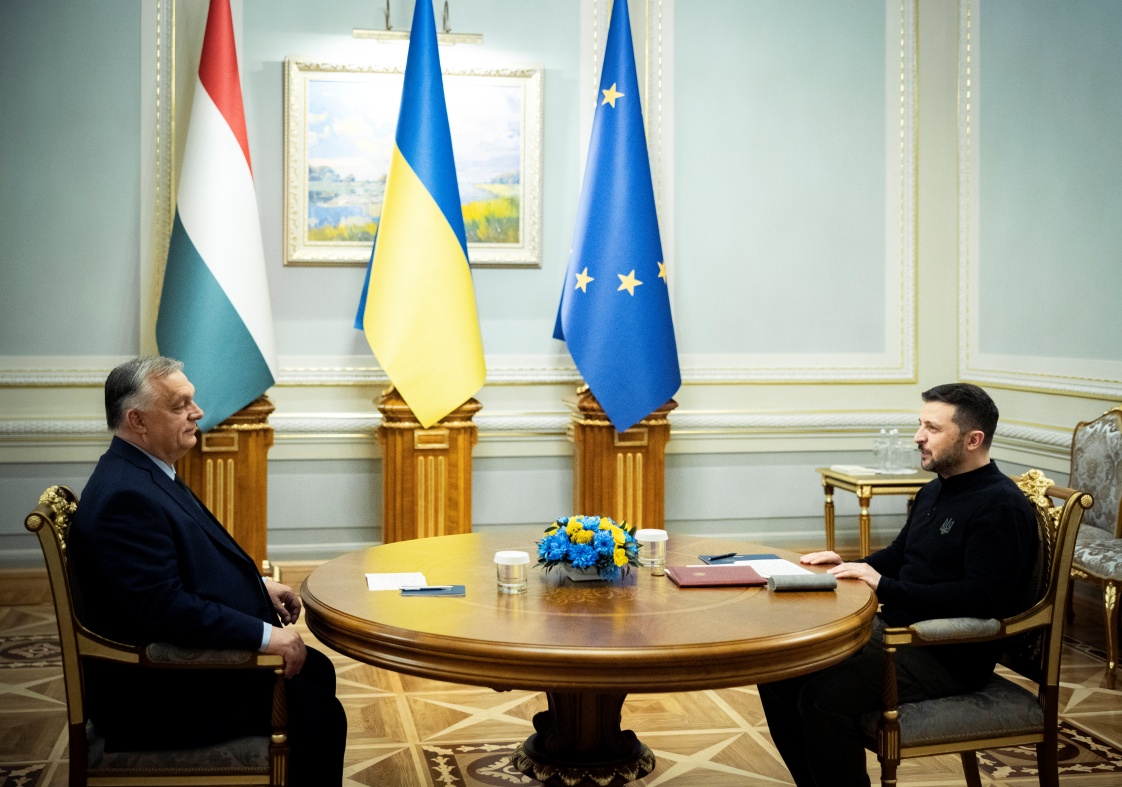
Just over a quarter of Hungarians (28 percent) are dissatisfied with the peace mission.Continue reading

During a press briefing on Monday at the Embassy of the People’s Republic of China in Budapest, we have asked Ambassador Gong Tao for his take on the Polish Foreign Minister’s recent remarks. In this the head of Polish diplomacy had suggested that there is a contradiction in Hungarian efforts to maintain national sovereignty and the fact that the government of Viktor Orbán had allowed Chinese police officers to join patrols in Hungary.
The Polish Foreign Minister Radosław Sikorski said that the Polish leadership would not allow Chinese police officers to patrol the streets of Warsaw as is the case in Hungary, but he added that
everyone perceives their sovereignty as they see fit”.

Facebook Radosław Sikorski
Hungary Today had asked Ambassador Tao to give his thoughts on how he sees the strengthening of Chinese-Hungarian relations in general are affecting the question of national sovereignty and how the two countries could work together to dispel the concerns of Hungary’s European allies.
The Ambassador replied by saying that the Chinese government fully respects Hungary’s sovereignty in domestic, as well as in foreign affairs. Both China and the EU play a decisive role in world trade, but China has an increasingly decisive role in world economy. This it strives to develop further through basing mutual relations with its partners on the principle of respect. He emphasized that
there is no significant geopolitical contradiction between European and Chinese interests, the common interest overwrites occasional differences.
He continued by saying that Hungary’s policy of “Eastern opening” is a good basis on which mutual interests can be realized. The Ambassador reminded that Hungarian Prime Minister Viktor Orbán himself had himself highlighted these goals when he spoke about European connectivity.
Ambassador Tao explained that one of the important elements of Chinese culture is respect for peace, hence relations with foreign countries are conducted under the principle of non-interference in domestic affairs. One of their political guiding principles is not to do to others that they themselves would not wish to be subjected to.
He reminded of the fact that the Chinese people have suffered tremendously during wars, and over a century ago his country has also experienced a loss of sovereignty. The ambassador was most likely alluding to the Opium Wars (1839 to 1842 and 1856 to 1860) when China was forced to sign a peace agreement with Britain and France under humiliating terms. During this period Chinese rulers had no opportunity to enforce domestic laws and customs, and the country was governed to align with Western interests. Hence China has a strong affinity to Hungarian efforts to protect the country’s political sovereignty, he remarked.
He expressed his hope that the rest of the EU will understand that China’s goal is to develop economic ties with Europe, and pointed to Hungary as a positive example in embracing these relations.
Yet there are no expectations of a political nature, nor compromises violating the country’s sovereignty,
concluded the Chinese Ambassador to Hungary.
According to Hungary Today’s own research, there are several other examples of joint patrols with Chinese police officers in other European countries. Italy or Croatia, for instance, have also allowed Chinese police officers to patrol tourist areas with local police officers without either of the countries being accused of compromising their sovereignty to China. Not only Chinese, but other nations’ police officers are allowed to help their Hungarian colleagues in peak tourism season or during special events. Polish officers, for instance, have been assisting visitors from Poland during the Hungarian F1 Grand Prix for over a decade without this being perceived as a threat to Hungary’s domestic affairs.
Despite the often hostile rhetoric from Donald Tusk’s government, Poland’s trade relations with China are strong. Trade between the two countries is growing by some 10% annually, and in 2023, bilateral trade reached USD 42 billion. Poland was also among the first EU countries to sign a memorandum of understanding with Beijing to develop the Belt and Road Initiative. In comparison, bilateral trade volume in 2023 between Hungary and China was USD 14.5 billion.
Featured Image: Hungary Today